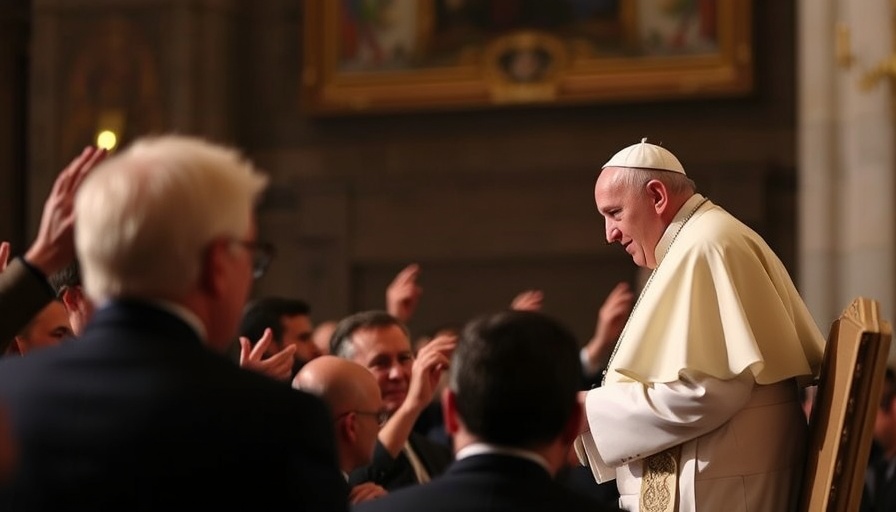
The Pope's Call for Humanity in the Face of Migration Challenges
In a powerful address, Pope Leo XIV urged the world to embrace a more humane perspective towards migrants, emphasizing the pressing need for empathy and justice in an era marked by global displacement and inequality. He stated, "Someone who says I’m against abortion but is in favor of the death penalty is not really pro-life" — a poignant reminder that a holistic respect for life must include the humane treatment of all individuals, irrespective of their immigration status or ethnicity.
Understanding Migration in a Broader Context
This call for humanity finds resonance not just in faith but also in the empirical evidence about the economic and social contributions of migrants. Despite fears that migrants may threaten job security or amplify economic woes, many studies, including those referenced in the World Migration Report, highlight that immigration bolsters economies by introducing diverse skills and labor in dire times, especially in nations like the United States. Pope Leo XIV is vocal about how systemic inequalities, conflicts, and deprivation of rights drive millions to seek refuge.
Empathy as a Universal Human Value
The Pope's insistence on welcoming and integrating migrants challenges us to reconsider our attitudes towards those who find themselves uprooted. In a recent address, he remarked, “Let’s not forget that a migrant has to be welcomed, accompanied, promoted, and integrated.” This emphasizes the moral imperative to foster a culture of encounter and understanding, which can significantly alleviate the psychological stressors faced by these individuals.
Historical Context of Migration Policies
The historical backdrop against which modern migration occurs includes centuries of colonialism, war, and socio-economic stratification. Adaptations in the demographic landscapes of nations due to these historical injustices contribute to the ongoing migration crisis. Addressing this requires thoughtful action from individuals, communities, and global leaders alike — a call Pope Leo XIV has reiterated time and again.
The Dangers of Indifference
Pope Leo XIV has warned against what he termed the “globalization of indifference,” where societal desensitization leads to a pervasive lack of empathy. He articulated that such apathy must be confronted with resolutions founded upon shared human dignity. Initiatives fostering compassion and recognition of common humanity can combat the damaging perceptions that ensue when people view migrants merely as numbers or burdens on public resources.
The Role of Education and Structural Change
To effect meaningful change, it is vital to empower communities through education, advocacy, and reform. Programs focusing on migrant rights, opportunities for integration, and fostering dialogue between migrants and citizens are critical steps towards building resilient communities. Learning about the histories and contributions of various immigrant groups can dispel myths and facilitate a more welcoming narrative.
Practical Steps Toward Inclusivity
When a community actively includes diverse voices and experiences, it cultivates a tapestry of resilience. In her recent discussions on environmental impact, Dr. Emily Shore pointed out that inclusivity fosters innovative solutions to global issues, demonstrating the connections between social and environmental justice. Migrants, with their unique perspectives and experiences, can unlock new ideas beneficial to society as a whole.
Conclusion: Fostering Compassion in Daily Life
Pope Leo XIV’s emphasis on a world more grounded in humanity stresses the potential for change in our interactions with others. As we strive to embody this ethic, let us remember that our small acts of kindness can contribute to a collective tapestry of belonging. A call to action resonates here: be the voice that promotes integration, empathy, and recognition of the shared humanity in all of us.
 Add Row
Add Row  Add
Add 




Write A Comment